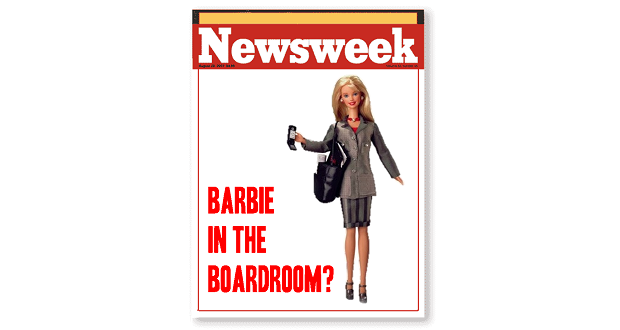
Mattel and Sports Illustrated have come under fire for using a children’s toy to promote sexualized images in a magazine for adults. Critics say this type of campaign further complicates Barbie’s legacy for parents unsure of whether to view her as a positive or negative role model. A Mattel Spokeswoman said, “the goal of the campaign is to empower fans to engage and celebrate all that makes them who they are.” The problem with this argument is that from a historical perspective we know that girls and women have been and continue to be viewed in “sexualized” ways, and not in ways that celebrate “all of who they are”. We know that young girls receive subliminal, and not so subliminal, messages all of the time that if you don’t look like Barbie, you are not attractive, you are not worthy. According to one survey 59% of girls in 5th-12th grade were dissatisfied with their body shape.
Lisa Wade, a professor at Occidental College has this to say about the Sports Illustrated issue:
It’s actually kind of perfect. Barbie is the perfect model for the SI swimsuit issue. It’s always been about celebrating conventional definitions of attractiveness for women, and Barbie is an icon of idealized femininity. Both Barbie and the swimsuit issue have been making women and girls feel inadequate for decades. It’s a perfect partnership.
Giving credit to Mattel for portraying Barbie in over 150 careers since her debut in 1959, this most recent debate for me is more about using Barbie to exacerbate the stereotype of woman as sex objects in such a high profile, and as Mattel puts it, “unapologetic” way. Over the years Barbie has been a teacher, doctor, computer scientist, army officer, paleontologist, chef, among many other career depictions. However her most commonly portrayed careers have been in education and the arts, more typical types of careers for women.
How about Barbie on the cover of Fortune Magazine or Business Week as a CEO or member of the board of a major company?
These are truly complex issues and I know that Mattel is very committed to diversity and inclusion. However, how we depict women has such a huge influence on young girls’ self-esteem that we must really think through decisions such as this and unintended consequences.


















